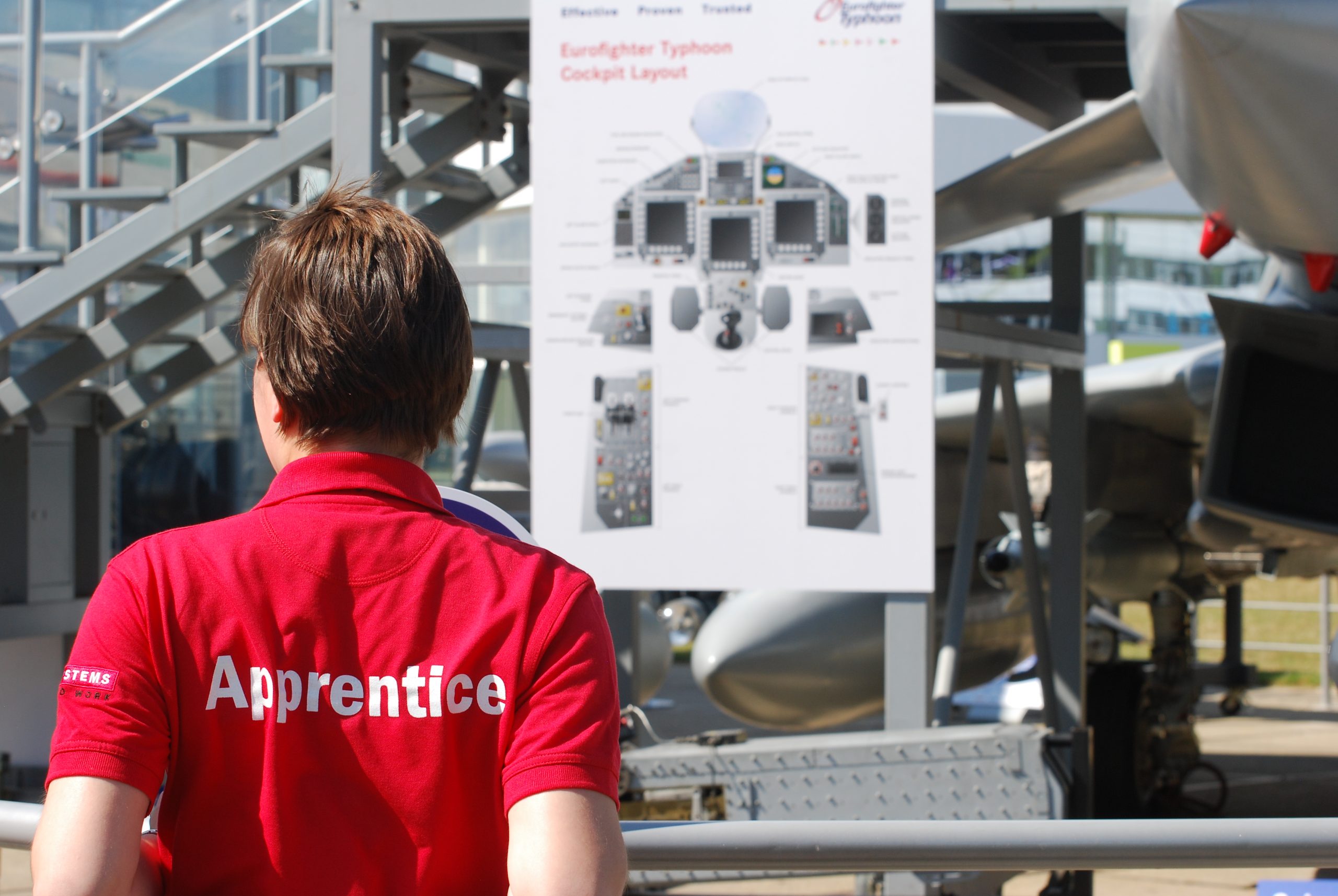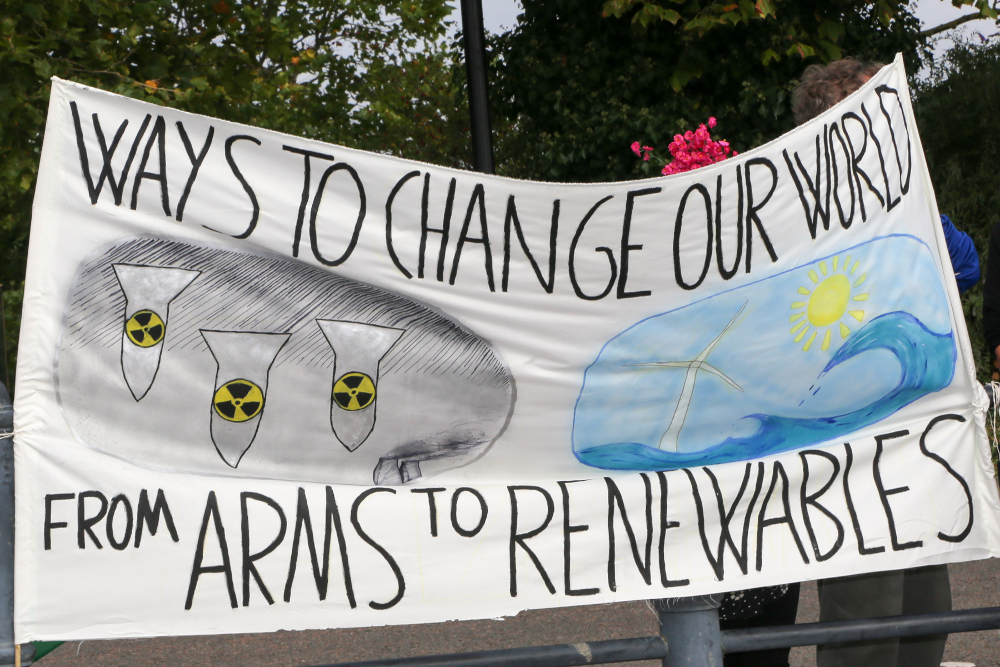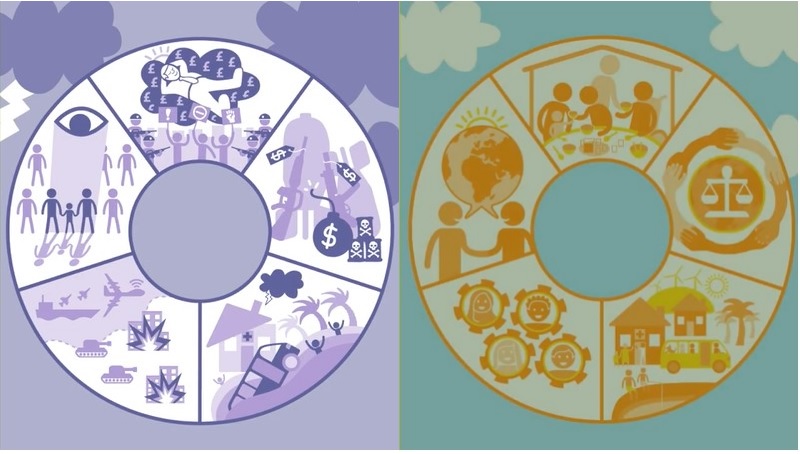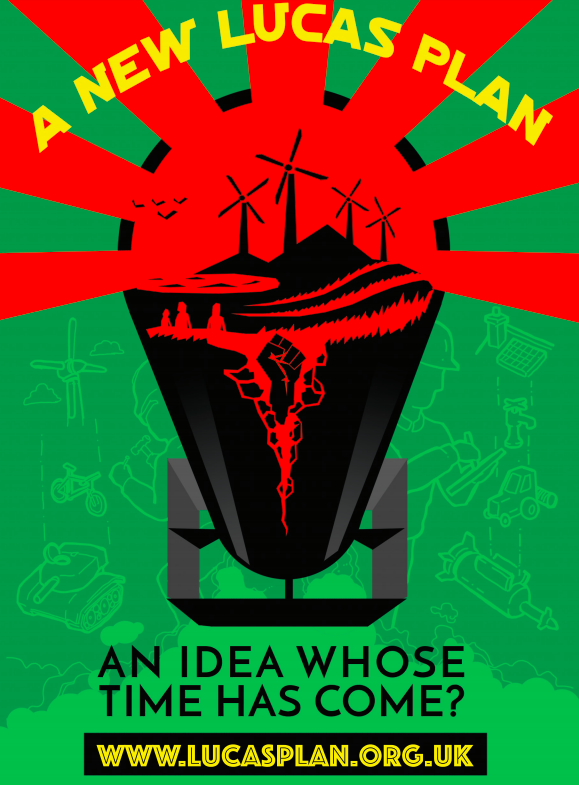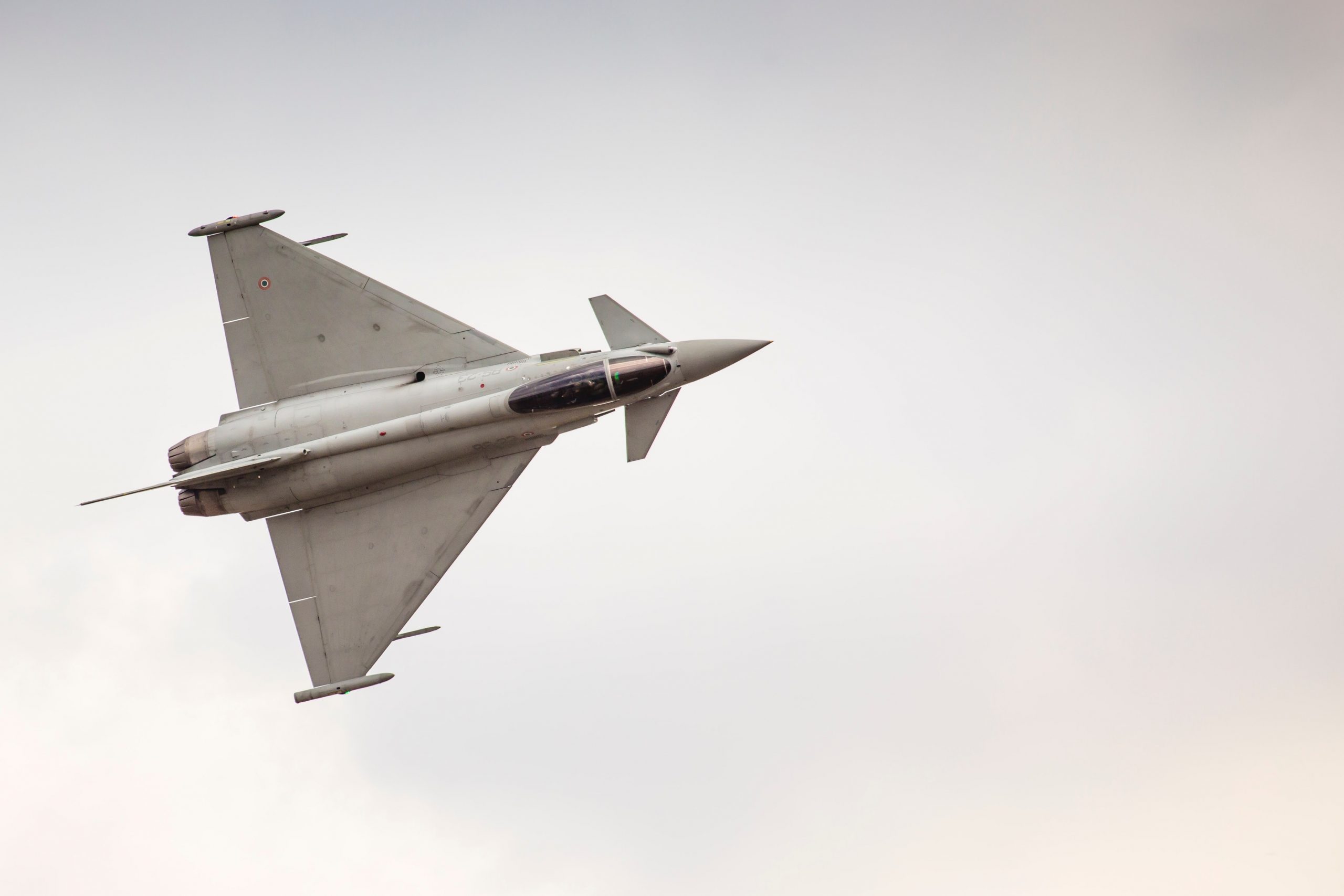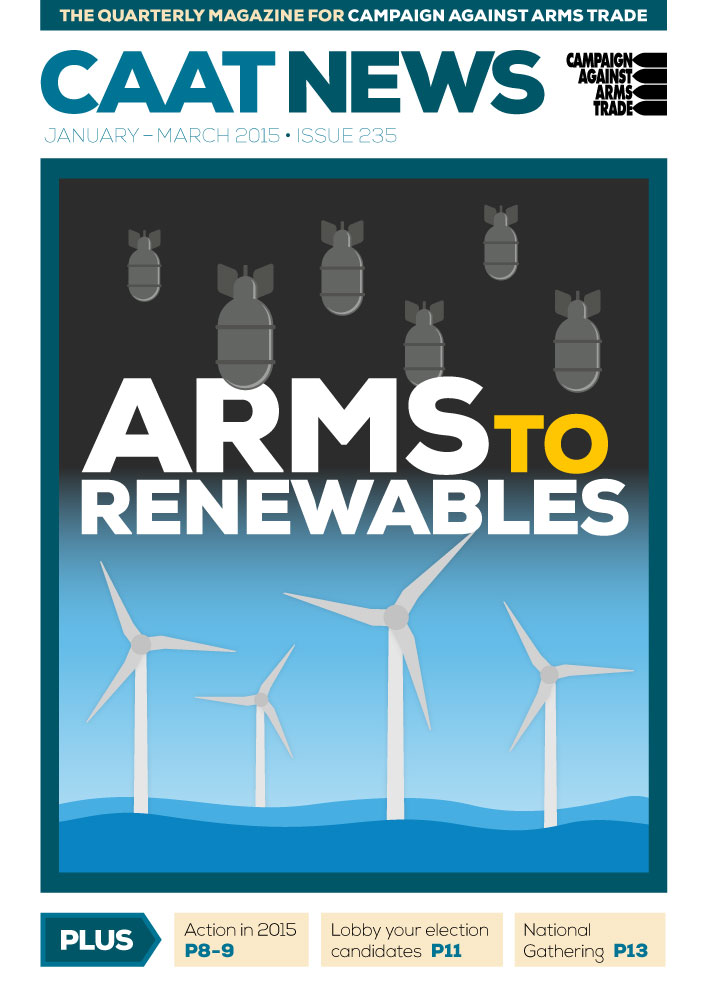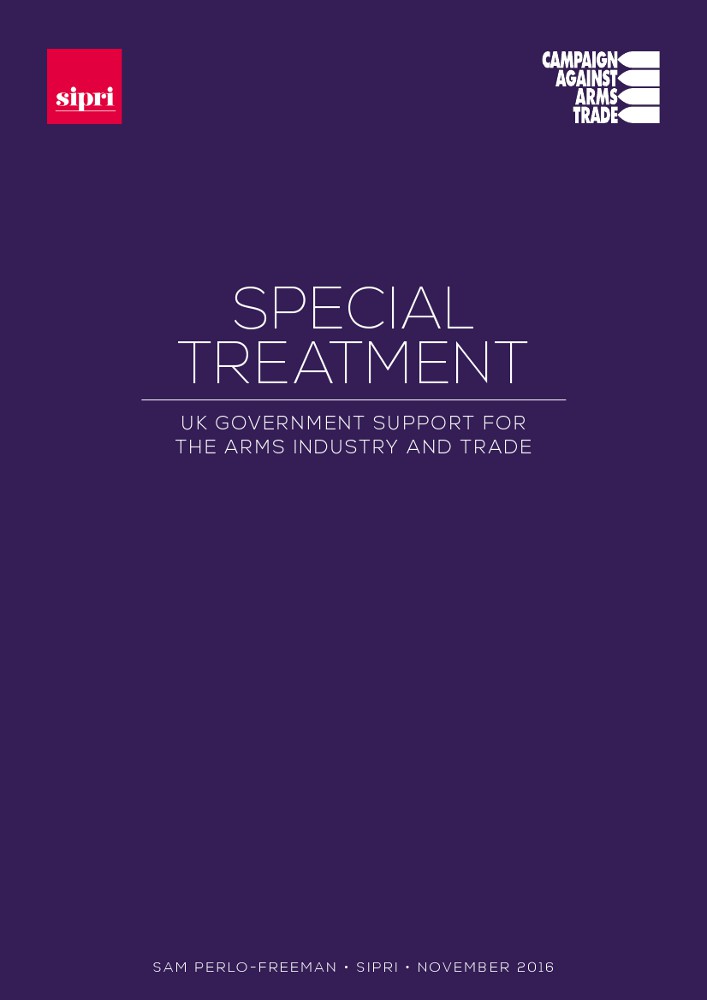The UK government justifies its support for the arms trade – its own high military spending and its support for arms exports – by arguing that it needs to protect high skilled manufacturing jobs.
In reality the economic importance of the industry is often overstated, and the industry is on a long-term decline.
The industry receives extensive support from government. Reallocating these resources could create more and better jobs and contribute to a safer world.
Arms industry jobs
Using government and industry data, CAAT estimates that there are 170,000 jobs in the UK arms industry: 115,000 at the Ministry of Defence, and 55,000 in company arms exports.
The government and industry routinely use a figure of 300,000 jobs. This is misleading, primarily as it includes many jobs that do not relate to producing equipment. For example, it includes around 100,000 jobs from unrelated spending by the Ministry of Defence on items such as gas, water and electricity, and maintaining the defence estate.
Arms export figures
Arms exports (both goods and services) are estimated to be worth around £7 billion per year. This means they make up just 1.4% of total UK exports. However, even this is an overestimate of their importance as much of the value of the exports is imported in the first place.
The estimate of 55,000 arms export jobs is drawn from the arms industry’s trade association (ADS). Using this figure, 0.2% of the UK workforce is employed in producing arms for export.

